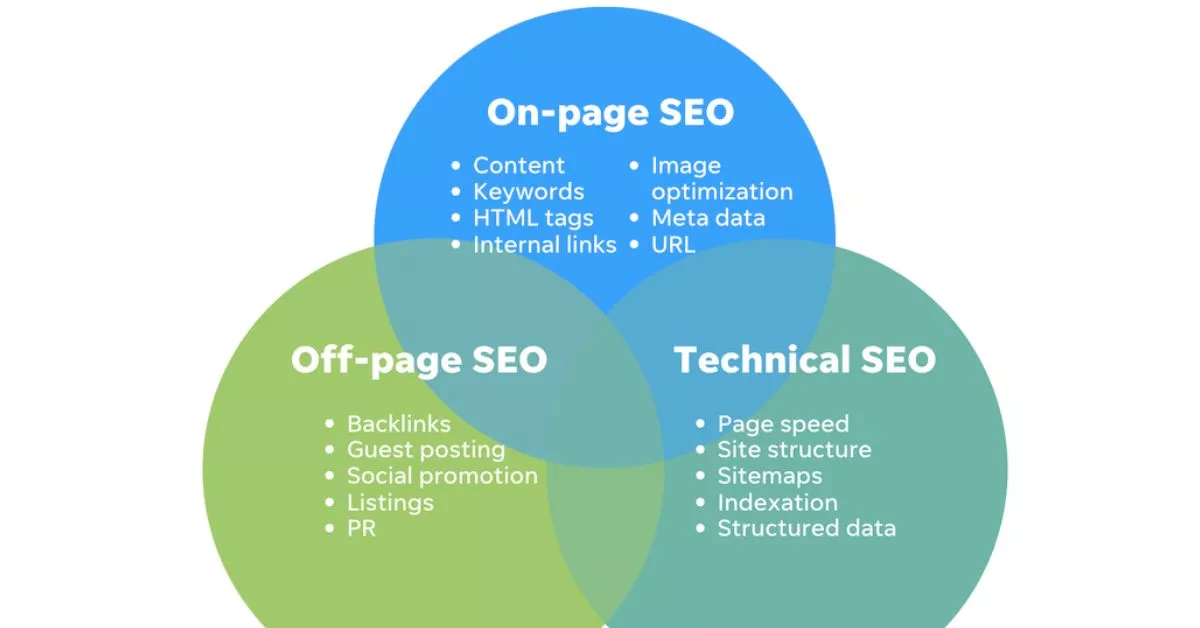In today’s digital age, a strong online presence is paramount for businesses and individuals alike. Search engine optimization (SEO) plays a crucial role in driving organic traffic and ensuring your website ranks high in search engine results pages (SERPs). This introductory guide dives deep into the world of SEO, specifically focusing on two key pillars: on-page and off-page strategies.
Imagine your website as a beautiful castle, strategically positioned on a vast digital landscape. On-page optimization is akin to meticulously crafting the castle’s interior, ensuring its content is relevant, well-structured, and optimized for search engines. This involves keyword research, title tag optimization, meta descriptions, website speed, and various other technical factors.
But a castle alone is not enough to attract visitors. Off-page strategies are like building a drawbridge and bustling marketplace around your castle, attracting visitors and enhancing your visibility. This encompasses link building, social media marketing, guest blogging, and other tactics that increase your website’s authority and reputation in the eyes of search engines.

On-Page SEO refers to the optimization efforts made directly within a website to enhance its visibility in search engine results and improve organic traffic. It involves optimizing individual web pages’ content, HTML source code, and site structure. Key elements include.
1. Content Optimization
- Keyword Research: Identifying relevant keywords and strategically integrating them into page titles, headings, meta descriptions, and content.
- Quality Content: Providing valuable, informative, and engaging content that satisfies user intent and encourages longer dwell times.
2. Meta Tags and HTML Elements
- Title Tags: Crafting unique and descriptive title tags for each page to accurately represent its content.
- Meta Descriptions: Writing compelling meta descriptions that summarize the page’s content and entice clicks.
3. Site Architecture and Structure
- URL Structure: Creating descriptive and user-friendly URLs that include targeted keywords.
- Internal Linking: Establishing a logical site structure with internal links to improve navigation and distribute link equity.
4. Page Performance and Technical SEO
- Mobile Optimization: Ensuring the website is mobile-friendly and responsive for seamless user experience across devices.
- Site Speed: Optimizing page loading speed to enhance user experience and meet search engine performance criteria.
Off-Page SEO
Off-Page SEO encompasses actions taken outside the website to enhance its authority, credibility, and relevance. It focuses on building external signals that influence search engine rankings. Key elements include:
1. Link Building
- Backlinks: Acquiring high-quality backlinks from authoritative and relevant websites to improve the site’s credibility and trustworthiness.
- Anchor Text Optimization: Using relevant anchor texts in backlinks to signal the context and relevance of linked content.
2. Social Media Presence and Engagement
- Social Signals: Engaging on social media platforms to increase brand visibility, drive traffic, and potentially gain social signals that indirectly impact rankings.
3. Brand Mentions and Citations
- Brand Building: Cultivating brand mentions, citations, and positive reviews across the web to establish authority and credibility.
4. Influencer Marketing and Guest Posting
- Influencer Collaborations: Collaborating with influencers or industry experts to gain exposure and reach relevant audiences.
- Guest Posting: Writing quality guest posts for reputable websites to earn backlinks and expand brand awareness.
5. Online Reputation Management
- Reputation Building: Managing online reviews and addressing customer feedback to build a positive online reputation, which indirectly impacts SEO.
On-Page and Off-Page SEO strategies work synergistically to improve a website’s search engine rankings, visibility, and credibility. While On-Page SEO focuses on optimizing website elements and content relevance, Off-Page SEO revolves around building authority and trust through external signals and relationships. A comprehensive SEO strategy incorporates both aspects to maximize online presence and achieve long-term success in search engine rankings.

Conclusion
Both On-Page and Off-Page SEO strategies are integral parts of a comprehensive SEO approach. While On-Page SEO focuses on optimizing content and website elements, Off-Page SEO concentrates on building authority and credibility through external signals. A well-rounded SEO strategy combines these elements to improve search engine rankings, drive organic traffic, and enhance the overall online presence of a website.










